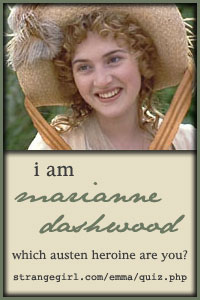
There is a lot of talk lately, particularly in blog-o-sphere, about the Blessing over the Sun, which will be occurring this year on April 8, 2009. It is only recited once every 28 years and it is taught in the Gemara that this is when the Sun returns to the exact same position it had at the time of Creation. Most of us are pretty clueless about what it is and what is involved, so I looked it up and found some good info on Wikipedia and askmoses.com. Below is from the askmoses.com website.
What is Birkat Hachama (Blessing over the Sun)?
The Askmoses Answer:
The Sun
The sun was created on the fourth day of Creation.
In its apparent motion in the ecliptic, the sun has four 'turning points' which mark the beginnings of the four respective seasons. These points are generically referred to in Jewish literature as the Tekufot (sing. Tekufah). They are: the two equinoctial points when the sun crosses the equator at the beginning of spring and autumn respectively, and 'turns' from one side of the equator to the other; and the two solstices, when the sun is at its maximum distance, or declination, from the equator, at one or other side of it, at the beginning of summer and winter respectively, and instead of progressively increasing its declination it 'turns' to decrease it progressively.
In the week of creation at 6:00 p.m. on Tuesday, which is the beginning of the fourth day, the sun made its debut: the original Tekufah.
Every 28 years the Tekufah will recur not only at the same time of the day, but also on the same day of the week.
The Cycle
Now, A complete solar cycle consists of 365 1/4 days, or 52 weeks 1 day and six hours; which means every consecutive year the Tekufah occurs 1 1/4 days later in the week. So in the following year (after creation) spring began early Thursday at midnight (one day of the week and 6 hours after Tuesday at 6:00 p.m.). The following year it began at 6:00 a.m. on Friday, the following year at noon on Shabbat, and the year after that at 6:00 p.m. on Sunday.
Every 4 years it occurs at the same time of the day but (1 1/4 X 4 =) 5 days later in the week. Every 28 years (10227 days) the Tekufah will recur not only at the same time of the day, but also on the same day of the week.
The Date
Since the sun and moon were created on the 4th day, the beginning of the 28 years cycle is always at the vernal equinox at 6 p.m. on Tuesday evening (the beginning of the fourth day). Birkat Hachama is thus always on a Wednesday morning (when the sun is actually visible).
The date of the month, however, changes. Since Birkat Hachama follows the solar cycle whereas the Jewish calendar follows (for the most part) the lunar cycle, the Hebrew date for this varies widely: in the past 400 years, Birkat Hachama has been said as early as the 27th of Adar II (in 5461 [1701]) and as late as the 26th of Nissan (in 5545 [1785] and 5629 [1869]).
The Gregorian date also varies, albeit slightly, changing every century that the Gregorian calendar skips a leap date (i.e. when there is no February 29 in years ending in "00", not divisible by 400). Therefore, in the 19th Century Birkat Hachama was said on April 7. It switched to April 8 when there was no February 29, 1900. After 2100, when February 29 will not occur, it will switch to April 9.
The Ceremony
Our Rabbis taught:3 "He who sees the sun at its [original] Tekufah... should say: 'Blessed be He who makes the work of creation'. And when does this happen? Abaye said: Every twenty eight years when the cycle begins again and the Nisan [Spring] equinox falls in Saturn on the evening of Tuesday, going into Wednesday."
The actual blessing is:
Boruch attah ado-nai elo-heinu melech haolam oseh maaseh bereishit.
[Blessed are You, Lord our G-d, King of the Universe, Who makes the Work of Creation].
Additional prayers are said before and after the blessing.4 It is preferable to celebrate this event with an early-morning outdoor communal ceremony, and if a Minyan is present the ceremony is concluded with the mourner's Kaddish.
Footnotes
* 1. Talmud tractate Berachot 59b
* 2. Birkat Hachama follows the solar (rather than Jewish) calendar, and is thus determined by the Gregorian (rather than Jewish) date.
* 3. Talmud tractate Brachot 59b, codified in Shulchan Aruch Orach Chaim 229:2
* 4. Before: Psalm 148. After: Ei-l Adon (from the Shabbat morning prayer); Psalm 19; and Aleinu. See Mishna Brura 229:8. See also Teshuvos Chasam Sofer 1:56. There are various other customs as to which psukim and tefillos are recited before and after the bracha.















No comments:
Post a Comment